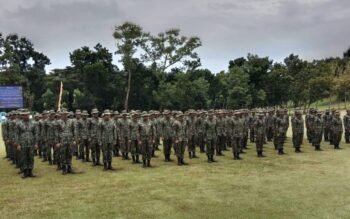DAVAO CITY (MindaNews / 30 December) — In the first two years of the six-year Duterte administration, the Bangsamoro has had to contend with three major issues in their long history of struggle for their right to self-determination: the passage of a Bangsamoro Basic Law compliant with the Comprehensive Agreement on the Bangsamoro (CAB) between the government and the Moro Islamic Liberation Front (MILF) and inclusive of the unimplemented provisions of the 1996 Final Peace Agreement between government and the Moro National Liberation Front (MNLF); the proposed shift from Presidential to federal system of government; and the rehabilitation of Marawi, a city destroyed by the five-month war between government forces and the Islamic State-inspired Maute Group and its allies in 2017.
These challenges are daunting, to say the least, given the divergent positions of the Bangsamoro from various sectors and persuasions. But the Bangsamoro Insider Mediators (IM) welcomed the challenges and sought ways to reach a consensus.
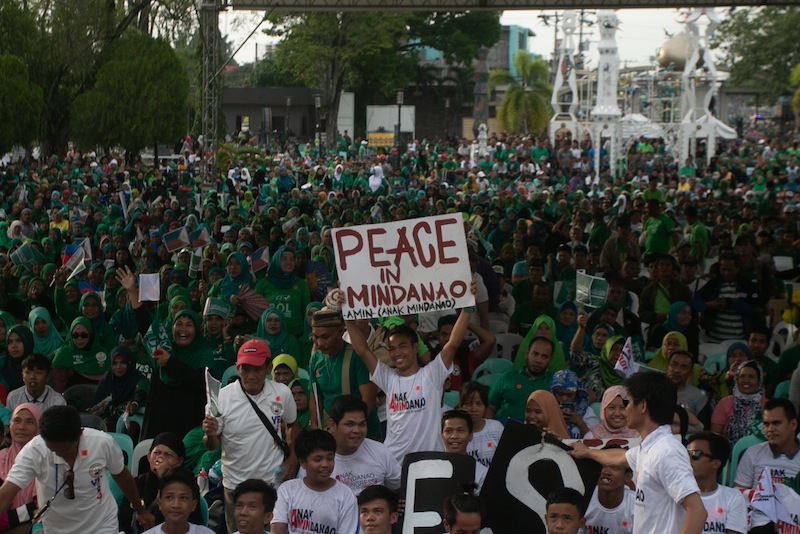 Thousands of supporters for the ratification of RA 11054 or the Organic Law for the Bangsamoro Autonomous Region in Muslim Mindanao gather in the compound of the Autonomous Region in Muslim Mindanao on 18 January 2019 while President Rodrigo Duterte, who graced the Peace Assembly inside the Shariff Kabunsuan Cultural Complex, said a ‘yes’ to ratify the Bangsamoro law ends the 50-year armed struggle and marks a “new chapter in our history.” MindaNews photo by MANMAN DEJETO
Thousands of supporters for the ratification of RA 11054 or the Organic Law for the Bangsamoro Autonomous Region in Muslim Mindanao gather in the compound of the Autonomous Region in Muslim Mindanao on 18 January 2019 while President Rodrigo Duterte, who graced the Peace Assembly inside the Shariff Kabunsuan Cultural Complex, said a ‘yes’ to ratify the Bangsamoro law ends the 50-year armed struggle and marks a “new chapter in our history.” MindaNews photo by MANMAN DEJETO
The United Nations Development Programme (UNDP) gathered these leaders from different Bangsamoro sectors across generations to undergo training on insider mediation in several batches starting September 2016.
The series of trainings gave impetus to the IM, a platform for Bangsamoro men and women from various sectors who work within their respective organizations to achieve a wider consensus on major Moro issues.
According to the UNDP, the concept of insider mediation emerged from the recognition that key actors in countries at risk of conflict “must be equipped with the appropriate skills for mediation and dialogue” and that experience has shown that external mediation “is not always possible or desired by countries.”
Insider mediation “draws upon the abilities of institutions or individuals that are seen as ‘insiders’ within a given context.”
In the case of the Bangsamoro, the IM incudes leaders from civil society, government and armed revolutionaries that negotiated peace with government like the MILF and MNLF.
According to the UNDP’s “Supporting Insider Mediation: Strengthening Resilience to Conflict and Turbulence,” insider mediators “have the invaluable advantages of being trusted and respected individuals, and bring with them a higher legitimacy, cultural closeness with the parties, and an ability to convene all relevant stakeholders and also those impacted by the conflict.”
“In recent years insider mediators have proved successful in ensuring peaceful elections; facilitating dialogue, breaking political deadlocks and establishing the groundwork for formal peace negotiations in a number of countries,” it said.
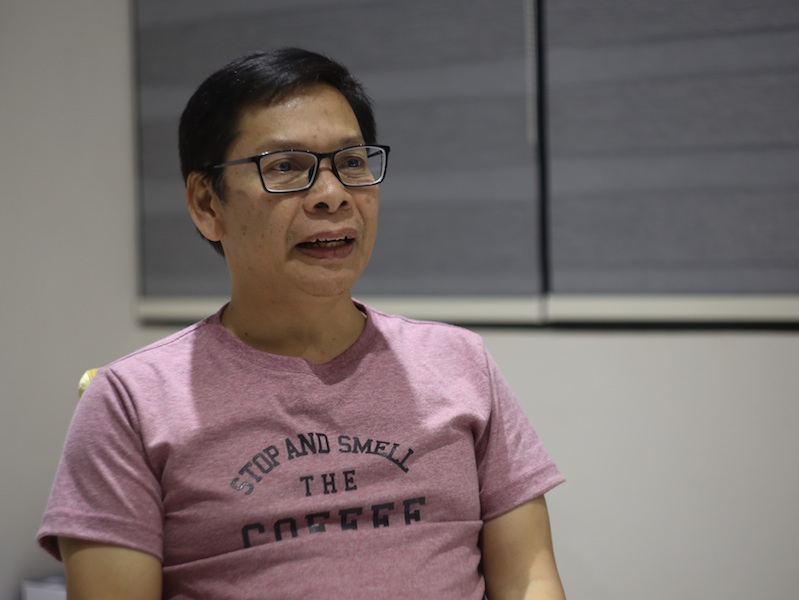 Lawyer Naguib Sinarimbo, co-convenor, Bangsamoro Insider Mediators. MindaNews photo by MANMAN DEJETO
Lawyer Naguib Sinarimbo, co-convenor, Bangsamoro Insider Mediators. MindaNews photo by MANMAN DEJETO
Lawyer Naguib Sinarimbo, who was among the first to train in insider mediation said the UN used to send mediators from outside to help in conflict resolution but there has been much discussion inside the UN “about how effective actually is mediation undertaken by someone outside of the conflict.”
Sinarimbo was invited to attend a workshop in the Netherlands on insider mediation where he presented the case of the Bangsamoro, “a diagnosis (of) what appears to be a conflict not just (between) the Bangsamoro and the Government but also within the Bangsamoro because of different sectors, groups and during the presentation, one of the lecturers in the workshop in the Netherlands took interest in the case of the Bangsamoro and asked us if we can actually roll out the program because it’s a new program in the UN and they wanted to test it in different areas including Africa.”
“In the Bangsamoro, we took the initiative of trying to work out the system of mediating the internal conflict between the Moros and the Philippine government and also inside the Bangsamoro, among us. So as we trained individual Bangsamoro, we made sure that we got people from different organizations… so in the case of the revolutionary groups for instance, in the initial list of people who will be trained for mediation, we chose people from the MILF, MNLF two factions, and from different groups so that we can have a group with the same kind of training, essentially with the same kind of skill. In a way, you level the playing field and then paint a platform where these individuals who have been trained in mediation would be able to discuss very important issues affecting the Bangsamoro. So that was the beginning of the insider mediation group. So as we trained, we also included them in the platform that we painted. We call it now the Bangsamoro Insider Mediators,” Sinarimbo said on November 8, 2018, during a gathering of the IMs in Davao City to report on the visioning exercises they facilitated in various parts of Mindanao.
From the initial 30, the Bangsamoro IM has grown to “I think over a hundred,” Sinarimbo said.
The IM continued to deliberate on “very important issues” that affect the Bangsamoro – Marawi rehabilitation, federalism, implementation of the peace agreements, including what they would do should they succeed in setting up the Bangsamoro Government.
“What we do, what actually needs to be done so that we don’t just get a government but that we also make sure that this government delivers on its promise to improve the socio-economic condition of the Bangsamoro,” Sinarimbo added.
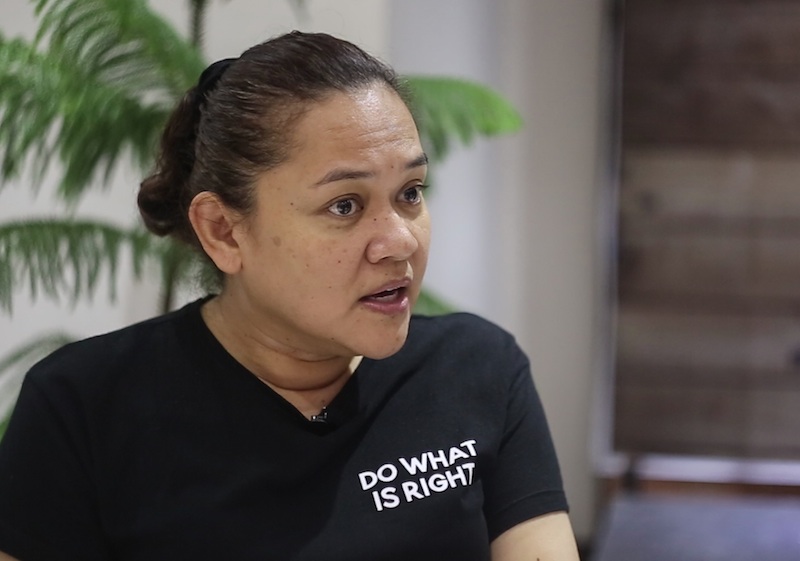 Fatima Pir Tillah Allian, Program Manager, Nisa Ul Haqq Fi Bangsamoro or Women for Truth and Justice in the Bangsamoro). MindaNews photo by MANMAN DEJETO
Fatima Pir Tillah Allian, Program Manager, Nisa Ul Haqq Fi Bangsamoro or Women for Truth and Justice in the Bangsamoro). MindaNews photo by MANMAN DEJETO
For Fatima Pir Allian, the right to self-determination, which is the essence of the Bangsamoro struggle, is “the common drive that we all have in IM regardless of your organization, regardless of your background.”
“It is the right to self-determination that binds us together,” she said.
Lawyer Randolph Parcasio, chair of the Moro National Liberation Front’s (MNLF) Peace Implementing Panel and the IM’s voice in the 25-member Consultative Commission that President Rodrigo Duterte appointed to review the 1987 Constitution and recommend provisions for amendments, towards a shift to the federal form of government, acknowledges that while the IMs have different views, they have a “common vision and the common vision is self-rule for the Bangsamoro.”
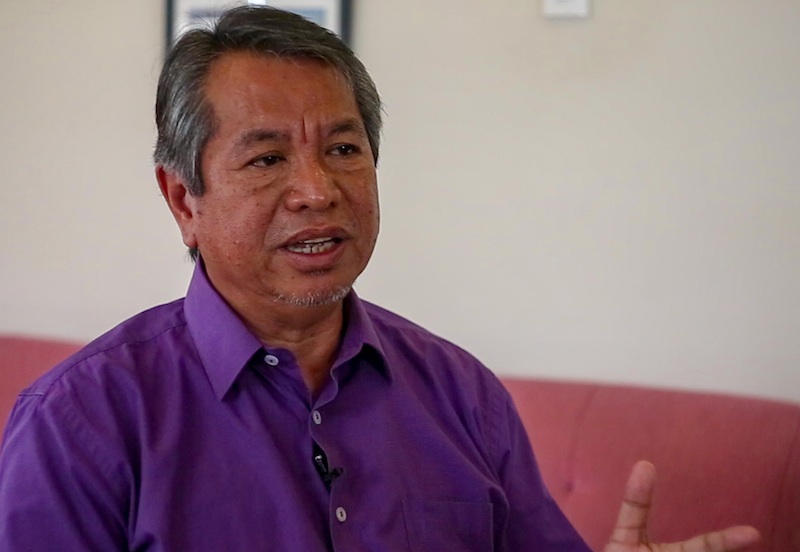 Laywer Randolph Parcasio, Chair, Peace Implementing Panel, Moro National Liberation Front under Nur Misuari; Member of the Consultative Commission
Laywer Randolph Parcasio, Chair, Peace Implementing Panel, Moro National Liberation Front under Nur Misuari; Member of the Consultative Commission
Parcasio said discussions among IM members “actually expose each one of us to others’ priorities and concerns… The discussions as far as I am concerned or I have experienced, have led us to synthesizing all these to .. be complementing each other without necessarily compromising your respective position.”
He cited as an example the MNLF’s pursuit of a Mindanao-Sulu archipelago-Palawan one federal state vision. “This does not clash with the idea of Bangsamoro core territory. In fact they reinforce each other,” he said.
“Each one is tolerant with each other. There is common vision and because of that we consider each view and respect each one’s position. It’s respect that makes this group strong and effective,” Parcasio added.
For Col. Taharudin Ampatuan, being in IM is “a peacebulding and a peacemaking activity.”
Ampatuan, an Army colonel, has not been absent in any IM meeting because the agenda for discussion is “very critical to the Bangsamoro and being one of the members of the Bangsamoro, I believe that there is a need for different divergent ideas to come into discussion.”
He noted how some members of the academe were surprised to know that the discussion among the IMs is “unstructured.”
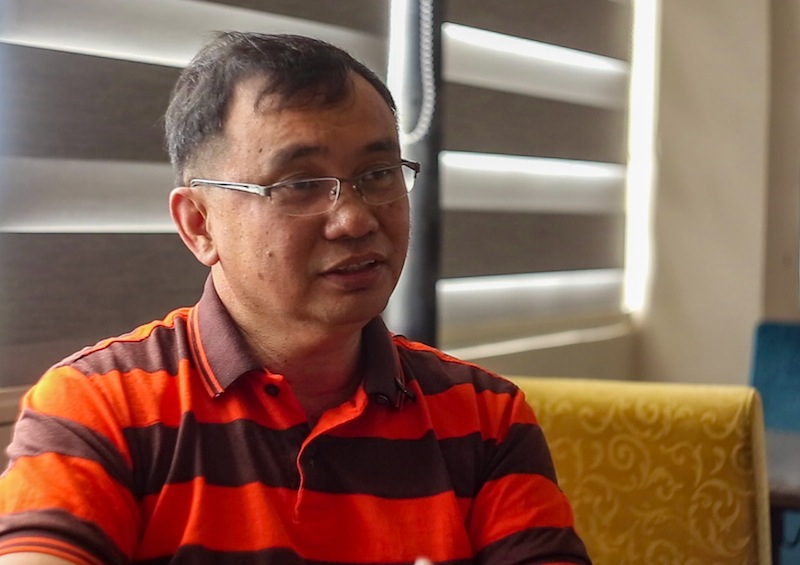 Col. Taharudin Ampatuan, Peace and Development Office, Armed Forces of the Philippines. Insider Mediator. MindaNews photo by MANMAN DEJETO
Col. Taharudin Ampatuan, Peace and Development Office, Armed Forces of the Philippines. Insider Mediator. MindaNews photo by MANMAN DEJETO
“It is an open-ended discussion for everybody,” said Ampatuan, Peace and Development Officer of the Armed Forces of the Philippines.
The same process was used by Ampatuan in facilitating a visioning exercise for leaders from various sectors: “the idea really is to allow people coming in from different sectors to articulate their … representation because some are coming from cooperatives, some are coming from fisherfolk, farmers. So basically, peoples organizations also have their own vision of what is possibly right for the Bangsamoro and therefore that should be allowed, be expressed in the platform provided by the Insider Mediators.”
Ampatuan explained that unlike other groups where there are do’s and don’ts, in the IM, “it’s a very democratic process wherein articulation of your issues, no matter how controversial it might be (is) allowed to be expressed.”
“I think the first thing that you get from IM is that you get to form a group so the IM provided the platform to contribute your expertise. That’s one. Second of course there are trainings on negotiations technique. Although we’ve been trained … several trainings very much related to that but the point is, you get to be trained with different people and … you organize and therefore it allows you more of relationships. You bring in your expertise to organizations, to IM and then they bring in their expertise and of course their experience,” the Colonel said. (Carolyn O. Arguillas / MindaNews)
